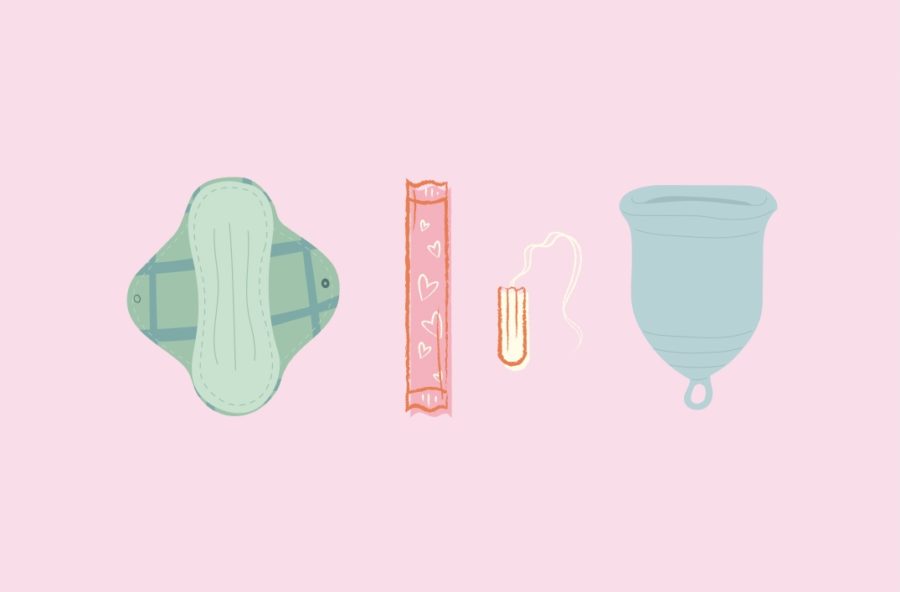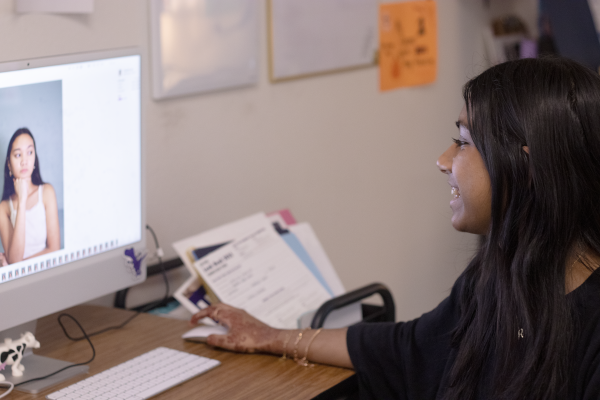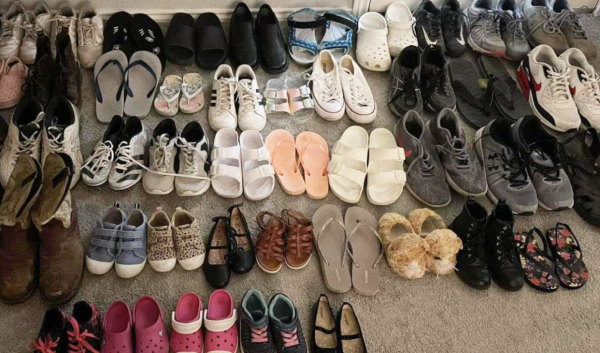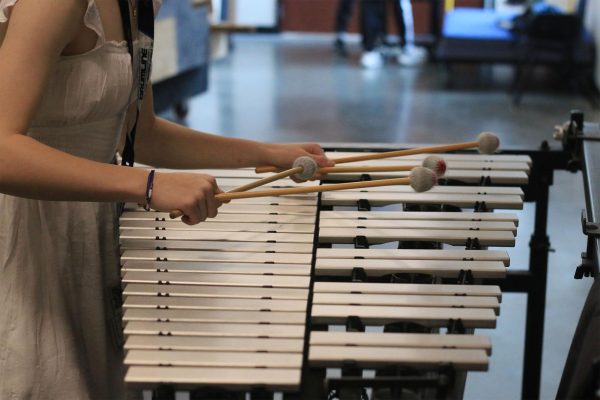Hebron GirlUp to meet with school board to discuss the addition of menstrual products in bathrooms
Hebron GirlUp will present its proposal for menstrual hygiene products in school bathrooms at the district board meeting on April 11. The organization met with school administration last week to discuss the logistics of adding dispensers to the bathrooms.
GirlUp is a student-led intersectional feminism club that aims to end gender-based disparities. To determine the extent of period poverty at Hebron, GirlUp sent out surveys prior to their meeting with the school administration and received over 200 responses in the span of six days. According to the survey, 98.9 % of students said that they needed a period product at school but didn’t have one, and 93.1 % of students said the lack of accessible products caused them to miss out on school or not be able to pay attention in class.
“The data showed us that students were very affected by the lack of access in bathrooms,” GirlUp co-founder and president Nandita Kumar said. “It also affects their learning and attendance, so there should be no reason that schools all over this country should not be providing free period products.”
GirlUp is aiming to get pads and tampons through the custodial contract LISD has with a third party company, ABM. ABM oversees the custodians, and the district evaluates the contract every two to three years.
“In the contract that we have worked with them, it is [ABM’s] responsibility to supply bathrooms and other needs around the campus,” assistant principal Rachel Flanders said. “When we need toilet paper or soap, that is coming [from] them. Hopefully, the pads and tampons can be a part of the contract and another thing that we can keep a steady supply of.”
Dispensers are also needed to hold the menstrual products. With the new bathroom remodel, the cost of the devices can range from $30 to $200 depending on the material and placement. Currently, the school is looking at baskets and bins that could be put under the sink or mounted to the wall to serve as an immediate solution.
“We are looking for a less permanent way to go ahead and [place menstrual products in the bathroom] right now,” Flanders said. “It’s our way to take care of a student need that’s been presented to us on campus immediately without having to go through the levels of approval and district change that we would need. I was blown away by the comments and data [GirlUp] brought to us, and it really broke my heart to know that we have such a large percentage of students who are dealing with menstruation issues at different levels.”
Kumar also said the lack of pads and tampons in bathrooms can lead to health consequences. According to the survey, 86.3 % of students had no choice but to resort to using toilet paper, which can lead to reproductive risks. Currently, students can only access menstrual products through the nurse’s office. To go to the nurse, students have to scan a QR code and wait until the nurse sends down a pass.
“By that time, students [who need access to pads or tampons] will be bleeding through their pants,” Kumar said. “Menstrual products are a basic need just like toilet paper, and you wouldn’t lock up toilet paper in the nurse’s office. All these factors combined with having to use a QR code to even go to the nurse and a strict system of who gets to go to the bathroom is just making it really hard for people who menstruate to take care of their health and then get back to school.”
Additionally, the survey showed that 98.9 % of students said they would be more comfortable if they could use pads or tampons available in the bathrooms instead of the nurse’s office.
“I have had so many instances where I ended up on my period, and I didn’t have any pads with me, ” junior Jiho Kwon said. “I didn’t feel comfortable going all the way to the nurse’s office because it would take time away from my classes. I would definitely like to see period products in the bathrooms next year.”
Kumar said the long-term goal for GirlUp is to get free products in gender-neutral and women’s bathrooms in all LISD middle and high schools. They plan to attend the next board meeting in April to advocate for menstrual hygiene products to be added to the custodial contract.
“This way, period products can be streamlined across the district, and it won’t be a hassle on each campus,” Kumar said. “We’re planning on going up there and presenting our findings and the comments we received from students. The goal is that students who forget or can’t afford period products don’t have to worry anymore. We’re trying to normalize periods because most people experience it, and we don’t want [periods] to be something that affects anyone’s learning.”

Senior Christy Thomas is a reporter and this is her first year on staff. She enjoys reading, working out and annoying her younger brother.













